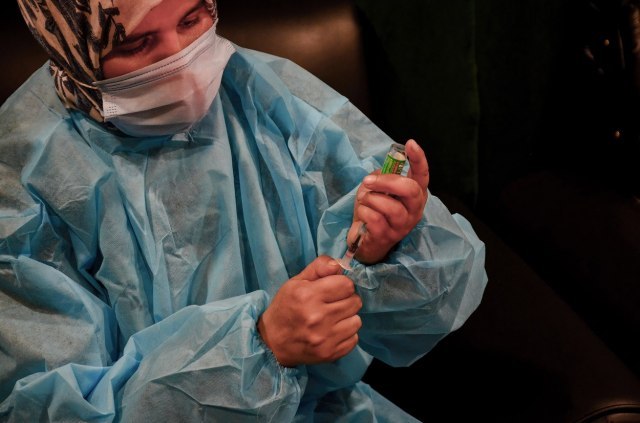Is the "Double mutation" from India dangerous?
By combining the two mutations, the Indian variant of the virus is able to easily avoid the reactions of the immune system.
Wednesday, 28.04.2021.
20:54

Therefore, both vaccinated and those who have survived Covid 19 may also become infected with this variant of the virus, even more quickly.
Is the "Double mutation" from India dangerous?
Individual mutations have been known for a while: E484Q is similar to the E484K variant, which appeared in the British, South African and Brazilian variants. And the L452R mutation can already be found in the California variant of CAL.20C.However, in India, these two mutations are now appearing together for the first time, which is why there is often a reference of a "double mutant" to it.
"Double mutation" is not the only cause
The fact that both mutants occur together does not necessarily mean that this variant is twice as contagious or dangerous – that still remains to be investigated; so far there is simply not enough data.
In any case, the "double mutation" is just one of the reasons for the catastrophic situation within the Indian subcontinent. India, with its nearly 1.4 billion inhabitants, has more than 17 million confirmed infections, and the number of unreported cases is probably huge. Nearly 200,000 people died due to Covid19.
The biggest problem is that too many cases happen at the same time - up to 353,000 new infections were detected in one day - causing the health system to collapse, which was already deteriorated in many parts of the country.
National and local authorities have fought the pandemic half-heartedly for too long, easing restrictions very early on, allowing even mass religious manifestations to take place.
What happens to the immune system?
When a new form of the virus finds a way to escape our immune system, scientists call it the Escape-Mutation.
According to the Robert Koch Institute, these mutations lead to a "reduced ability to neutralize pathogens with antibodies or T-cells." The deciding factor, however, is how much this reduction in ability actually has an effect.
These mutations can also be dangerous for those who have already been vaccinated and those who have recovered from Covid19. It is still unclear whether people who have been vaccinated can infect others.
However, SPD health expert and epidemiologist Karl Lauterbach cites a new study from India on neutralization, according to which existing vaccines should work against the new variant B.1.617.
Based on the latest British study, vaccines reduce the risk of infection by two-thirds, according to Lauterbach. And if you get sick despite vaccination, the probability of a severe course of the disease drops by two-thirds. This at least suggests that vaccinated patients themselves are less contagious.
International assessment
Even though it might sound cynical, considering the dramatic situation in India, the World Health Organization (WHO) has classified the Indian variant B.1.617 only as a "variant of Interest", i.e., one of those that should be paid attention to.
In contrast, the British variant B.1.1.7, the South African B.1.351, and the Brazilian variant P.1 were classified as the "Concern variant".
According to the WHO, these variants are "worrying" because they spread more easily, where the course of the disease is more difficult and extended, due to the virus ability to escape the immune system and because existing vaccines are less effective.
So far, however, very little reliable information is available on India's new "double mutation", so it is entirely possible that the WHO will have to adjust its classification inline with the reassessment of the data.
Experts are still calm
"It is still not possible to reliably state the trend, but it should be carefully observed," says Richard Neher, head of the research group Evolution of Viruses and Bacteria at the University of Basel. Not much is generally known about some variants with noteworthy mutations. “In that regard, I don’t think B.1.617 deserves more attention than the other variants,” Neher says.
Even Christian Dorsten, head of virology at Berlin's Charité University Clinic, sees no cause for concern in the Indian variant. Such mutations only require a "small update" for the next generation of vaccines, he said in his podcast.
















































Komentari 0